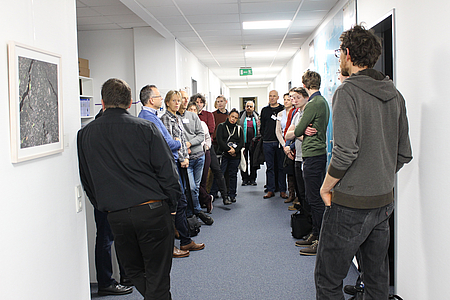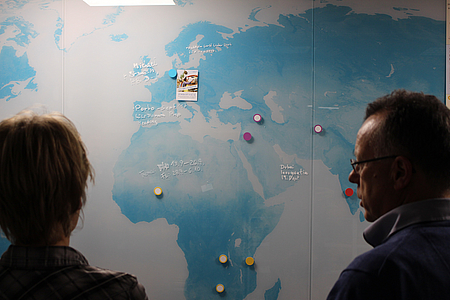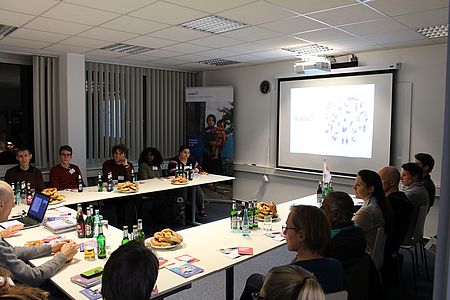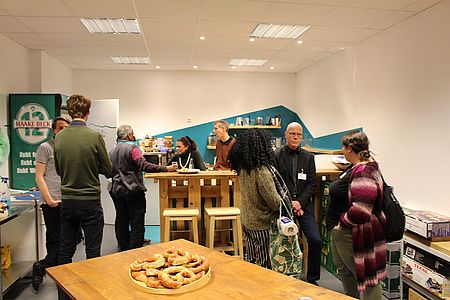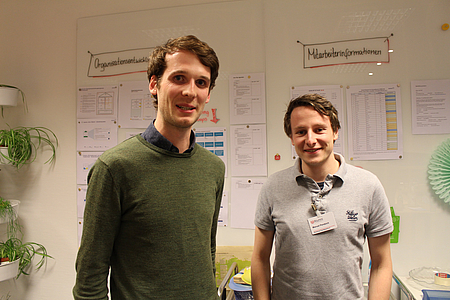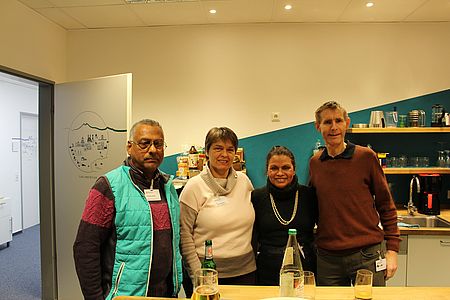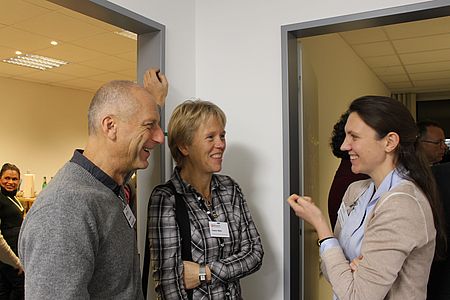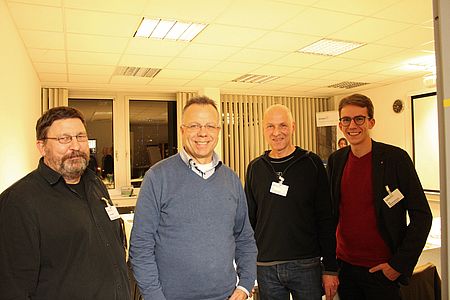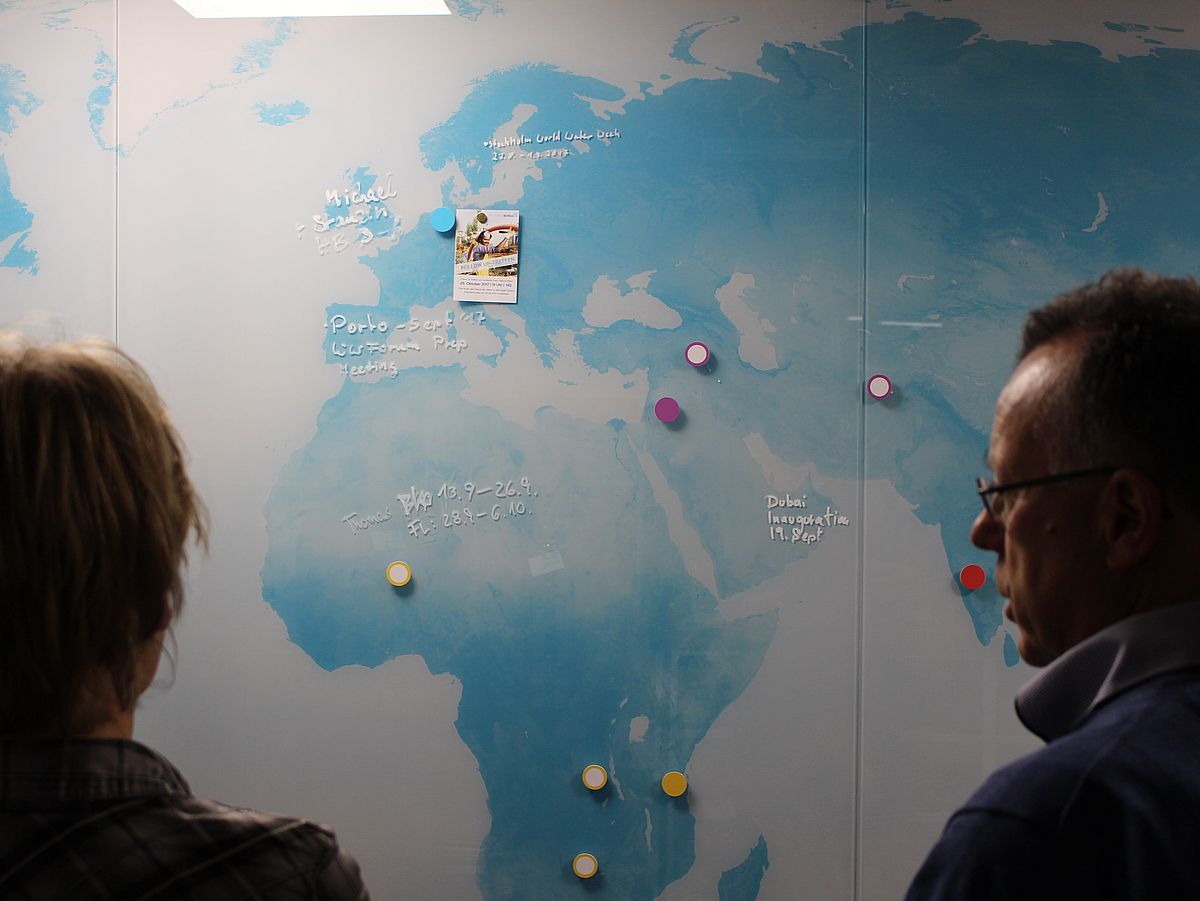[Translate to English:] Alumni bei BORDA am 05. Dezember 2017
Pictures of the evening
Living Water...
The fruitful conversation seemed to be endless as our host Christoph Sodemann was a source of information that was moving and inspiring. On December 5, 25 alumni visited BORDA – the Bremen Overseas Research and Development Association – in Bremen-Neustadt. Set goal of BORDA is basic sanitation in emerging and developing nations and, thus, to improve the living conditions of the people there – in an energy-efficient and sustainable manner. Since its foundation in the 1970s, the association’s goal is to provide help for self-help and to support capacity building for people so that they can implement their own projects – helping at eye-level. It is more about innovative ideas than complex technologies, about using pragmatic approaches and optimizing them. The boom in the cities that occurred in the 1980s has required a complete renewal of how we think about clean water and hygiene. Only well-functioning basic sanitation can ensure both. Not until the implementation of the Sustainable Development Goals of the UN (SDGs) has the topic come into focus internationally. By the year 2030, everyone should have access to basic sanitation and clean water. It is a demand that sets a noble yet not completely unattainable objective. BORDA has been the pioneer in this field. Therefore, the team from Bremen is often part of the conversations – as consultants and as a competent and experienced partner with a large network. BORDA employs 400 people in 25 countries across the globe. Christoph Sodemann, spokesman at BORDA, presented to us in detail different sewage systems and their possibilities in use. This underlined BORDA’s essential, conceptual task. They see themselves as a provider of knowhow and as trainers. One of the fundamental problems, however, still lies within the cultural taboo on this topic. Education is, thus, the decisive keyword. A photo volume was, for example, released in 2017 which aesthetically presents the cycle of materials from feces to fertilizer. The conviction, enthusiasm, and passion of our host defined the lively discussion. Many questions were asked and extensively discussed. It definitely was a topic that fascinated and activated the alumni.


